|
|
|
|
|
|
|
|
Today's Congressional Action:
The House is expected to consider a conference report to accompany S. 2943, the National Defense Authorization Act. The Senate is not in session.
|
Media
Canada Designates Its Second and Largest Arctic Marine Protected Area. A new marine protected area in the Canadian Arctic protects species and habitats, prevents oil and gas development and safeguards economic activities for Inuvialuit.
A block of the Beaufort Sea off the Parry Peninsula in the Amundsen Gulf has been set aside to create Canada's largest Arctic marine protected area (MPA), Anguniaqvia niqiqyuam. Huffington Post
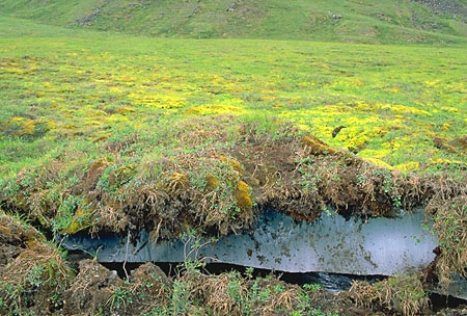 Arctic Soils Are Set to Release a lot of Carbon-Probably More Than Local Plants Can Absorb. As temperatures have risen in the Arctic and worldwide, so have worries about how much carbon might stream into the atmosphere from warmer soils. Will enough new carbon be released from the ground, potentially exacerbating the global warming cycle? And will new-growth carbon dioxide-absorbing plants growing in warmer conditions be able to keep pace? Now scientists have some better answers to both questions - and they're troubling. Alaska Dispatch News Arctic Soils Are Set to Release a lot of Carbon-Probably More Than Local Plants Can Absorb. As temperatures have risen in the Arctic and worldwide, so have worries about how much carbon might stream into the atmosphere from warmer soils. Will enough new carbon be released from the ground, potentially exacerbating the global warming cycle? And will new-growth carbon dioxide-absorbing plants growing in warmer conditions be able to keep pace? Now scientists have some better answers to both questions - and they're troubling. Alaska Dispatch News
Meeting on High Seas Fisheries in the Central Arctic Ocean. Delegations from Canada, the People's Republic of China, the Kingdom of Denmark in respect of the Faroe Islands and Greenland, the European Union, Iceland, Japan, the Republic of Korea, the Kingdom of Norway, the Russian Federation and the United States of America met in Tórshavn, The Faroe Islands, from 29 November to 1 December 2016 to continue discussions concerning the prevention of unregulated commercial fishing in the high seas area of the central Arctic Ocean and related scientific matters. The meeting followed previous talks that took place in Washington, D.C. from 1-3 December 2015 and from 19-21 April 2016 and in Iqaluit from 6-8 July 2016. Arctic Journal
Scientists Have Long Feared This 'Feedback' to the Climate System. Now They Say It's Happening. At a time when a huge pulse of uncertainty has been injected into the global project to stop the planet's warming, scientists have just raised the stakes even further. In a massive new study published Wednesday in the influential journal Nature, no less than 50 authors from around the world document a so-called climate system "feedback" that, they say, could make global warming considerably worse over the coming decades. The Washington Post
Thawing Permafrost is Altering Chemistry of Northern Rivers, Researchers Say. Researchers in Alaska say they're seeing significant changes in freshwater chemistry in the Yukon River basin, which they attribute to thawing permafrost.
It's also believed the changes are big enough to have "global implications" by changing the composition of the Arctic Ocean, said lead researcher Ryan Toohey, a hydrologist with the U.S. Department of the Interior's Alaska Climate Science Center. CBC NewsU of G Researchers Examine High Rate of Gastrointestinal Illness in the Arctic. Annual rates of gastrointestinal illness in Canada's North are among the highest reported in the world - three to six times higher than regions to the south - but there is currently little or no information about why it's so prevalent in the Arctic. University of Guelph researchers, along with representatives from the Nunavut Research Institute, Memorial University and the Public Health Agency of Canada, are searching for clues. Using a "one health" approach - considering how people, animals and environment intersect - they are looking at possible links between clams, dogs, surface water and zoonotic pathogens Giardia and Cryptosporidium, which can cause gastrointestinal illness. University of Guelph 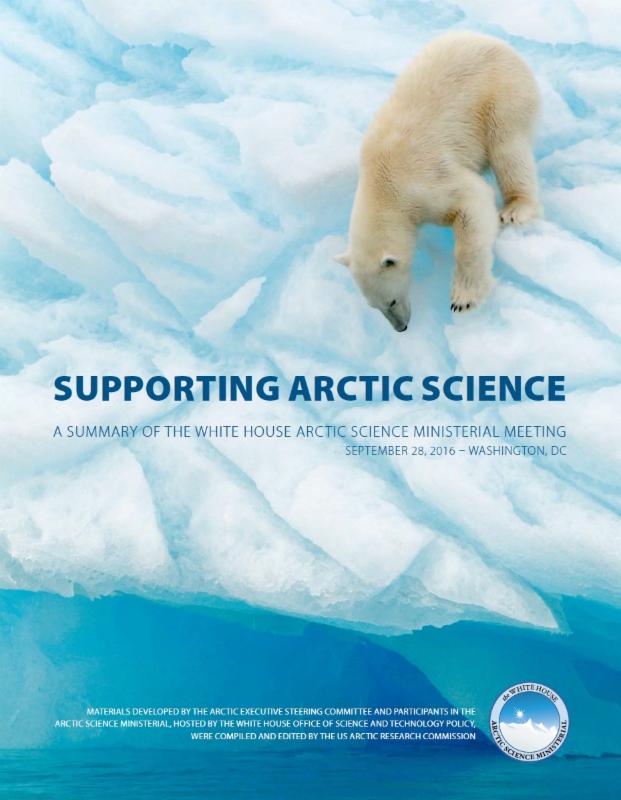 The US Arctic Research Commission is making freely available printed copies of the 80-page report, "Supporting Arctic Science: A Summary of the White House Arctic Science Ministerial Meeting. " The US Arctic Research Commission is making freely available printed copies of the 80-page report, "Supporting Arctic Science: A Summary of the White House Arctic Science Ministerial Meeting. "This document summarizes the September 28, 2016 meeting to advance international research efforts. The document includes the meeting agenda, a list of participants, the White House "fact sheet" that describes the outcomes from the meeting, the Joint Statement of Ministers, and a list of media reports on the event. Importantly, the document also includes a compilation of two-page descriptions of Arctic science support provided by the ministerial delegations from each of the 24 nations and the European Union. It's an excellent summary of the current state of Arctic research support in these governments and a record of the ministerial. Please send requests for copies (not to exceed 5, unless justified) to info@arctic.gov along with a name and mailing address. An electronic copy of the document (pdf) is also available here.
|
Legislative Action.gif)
No Arctic legislation was formally considered yesterday.
|
|
Future Events
 ArcticNet annual Scientific Meeting 2016, December 5-9, 2016 (Winnipeg, MP Canada). ArcticNet will host its 12th Annual Scientific Meeting. The ASM2016 will welcome researchers, students, Inuit, Northerners, policy makers and stakeholders to address the numerous environmental, social, economical and political challenges and opportunities that are emerging from climate change and modernization in the Arctic. As the largest annual Arctic research gathering held in Canada, ArcticNet's ASM is the ideal venue to showcase results from all fields of Arctic research, stimulate discussion and foster collaborations among those with a vested interest in the Arctic and its peoples. ArcticNet annual Scientific Meeting 2016, December 5-9, 2016 (Winnipeg, MP Canada). ArcticNet will host its 12th Annual Scientific Meeting. The ASM2016 will welcome researchers, students, Inuit, Northerners, policy makers and stakeholders to address the numerous environmental, social, economical and political challenges and opportunities that are emerging from climate change and modernization in the Arctic. As the largest annual Arctic research gathering held in Canada, ArcticNet's ASM is the ideal venue to showcase results from all fields of Arctic research, stimulate discussion and foster collaborations among those with a vested interest in the Arctic and its peoples.
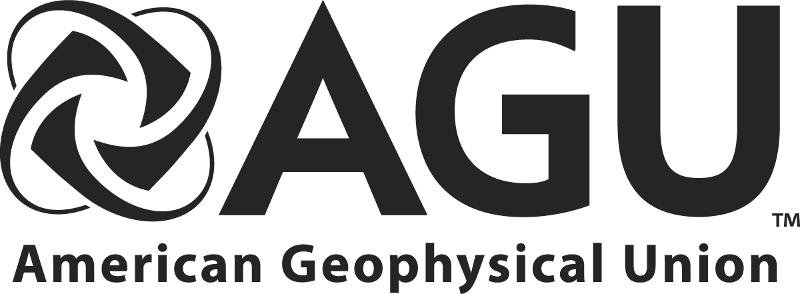 American Geophysical Union Fall Meeting, December 12-16, 2016 (San Francisco, CA USA). American Geophysical Union Fall Meeting, December 12-16, 2016 (San Francisco, CA USA). Anticipating about 25,000 attendees, AGU's Fall Meeting will again be the largest Earth and space science meeting in the world. 2016 marks the meeting's 49th year and there will be approximately 20,000 oral and poster presentations in over 1,700 sessions, many of which will focus specifically on Arctic science. Among the highlights, the "2016 Arctic Report" will again be released, IARPC will hold a "Town Hall Meeting" on Thursday, Dec. 15th, from 12:30 to 1:30 pm in Moscone West Room 2003, and NASA will have a Town Hall on Operation IceBridge on Dec. 14th, in Moscone Room 202 from 12:30 to 1:30 pm.
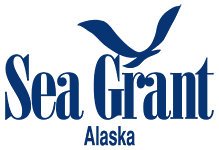 Symposium on Climate Displacement, Migration, and Relocation, December 13-14, 2016 (Honolulu, HI USA). The White House Council on Environmental Quality, NOAA's Office of Coastal Management, the Hawaii and Alaska Sea Grant College Programs, the William S. Richardson School of Law at the University of Hawai'i Manoa, and the Pacific Islands Climate Science Center are convening this symposium. The event will bring together stakeholders, policy makers, legal experts, academics, and others to discuss legal and policy options to assist individuals and communities considering relocation as an adaptation response to climate change, in both the domestic and international contexts. Symposium on Climate Displacement, Migration, and Relocation, December 13-14, 2016 (Honolulu, HI USA). The White House Council on Environmental Quality, NOAA's Office of Coastal Management, the Hawaii and Alaska Sea Grant College Programs, the William S. Richardson School of Law at the University of Hawai'i Manoa, and the Pacific Islands Climate Science Center are convening this symposium. The event will bring together stakeholders, policy makers, legal experts, academics, and others to discuss legal and policy options to assist individuals and communities considering relocation as an adaptation response to climate change, in both the domestic and international contexts.
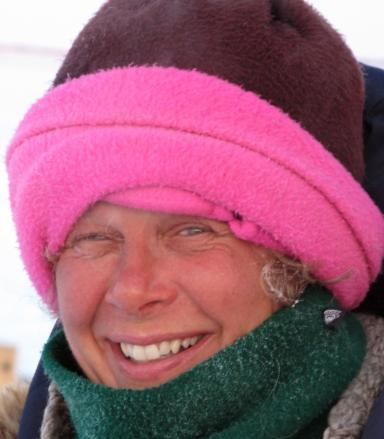
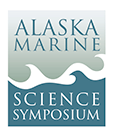 Alaska Marine Science Symposium, January 23-27, 2017 (Anchorage, AK USA). Alaska Marine Science Symposium, January 23-27, 2017 (Anchorage, AK USA). The annual Alaska Marine Science Symposium (AMSS) is Alaska's premier marine research conference. It brings together roughly 800 scientists, educators, resource managers, students, and interested public to discuss marine research being conducted in Alaskan waters. Research will be presented by geographic theme, including the Gulf of Alaska, Bering Sea & Aleutian Islands, and the Arctic. Topic areas will include ocean physics, fishes and invertebrates, seabirds, marine mammals, local traditional knowledge and more. Keynote presentations will be held Monday, January 23rd; Gulf of Alaska presentations will be on Tuesday, Bering Sea/Aleutian Islands on Wednesday, followed by the Arctic on Thursday. USARC will also do a "State of Alaska release" of its 2017-2018 "Goals Report" at this symposium. A prior release will be at the AGU meeting, described above, on December 15th.
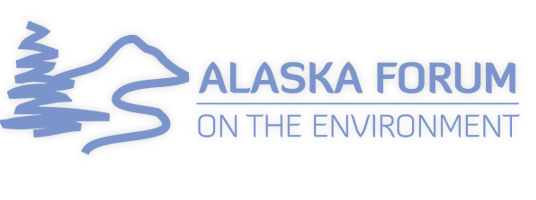 Alaska Forum on the Environment, February 6-10, 2017 (Anchorage, AK USA). Alaska Forum on the Environment, February 6-10, 2017 (Anchorage, AK USA). This statewide gathering of environmental professionals, community leaders, Alaskan youth, conservationists, biologists and community elders will be holding its 19th meeting to continue providing a strong educational foundation for all Alaskans and a unique opportunity to interact with others on environmental issues and challenges. As many as 1,800 people are expected to attend AFE this years meeting.
6th Annual Fletcher Arctic Conference, February 17-18, 2017 (Medford, MA USA). Fletcher Arctic VI, a TEDx-style event, will showcase the ideas, stories, and initiatives of people who live and work in the Arctic. The conference will bring together inspiring leaders, innovative business people, expert scientists, and artists from the pan-Arctic region. Building on The Fletcher School's interdisciplinary approach, Fletcher Arctic VI will be a forum to engage in conversation and spark open and constructive debate between speakers and participants, providing deep insights into this unique and rapidly changing region.
IV International Forum, March 2017 (Arkhangelsk, Russian Federation) Arkhangelsk will host the Forum. The Forum will be titled Human in the Arctic and will be aimed at putting together joint efforts of the international community to promote effective development of the Arctic region as a territory for comfort life, work and leisure. The Forum will be attended by government officials, representatives of international organizations and prominent business communities, centers for political studies, Polar researchers and members of the international Arctic expeditions, foreign political scientists and economists, Russian and foreign journalists from leading international media organizations. The Forum will be attended by the President of the Russian Federation, Mr. Vladimir Putin. Additional information will be announced here.
- The Arctic Cryosphere
- Pollution in the Arctic
- Human Health Aspects of Pollution and Climate Change
- Global and Arctic Systems Feedback Mechanisms
- Resilience within Arctic Ecosystems
- Science and Plicy Making
- Socio-Economic Drivers and Impacts of Arctic Change
Organizers announce a call for abstracts which are due by December 2, 2016. The event is organized by the Arctic Monitoring and Assessment Program (AMAP).
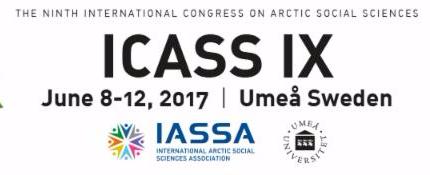 Ninth International Congress of Arctic Social Sciences: People and Places (ICASS IX), June 8-12, 2017 (Umeå, Sweden).ICASS IX's theme is People & Place. Research on social sciences and humanities have a great responsibility to address the challenges for sustainable development in the Arctic, with a specific focus on the many different parts of the Arctic and the people that live there. The multiple Arctics have lately been addressed by many policy makers and researchers. The purpose is often to counteract the stereotypic understanding of the Arctic too often represented by icebergs and polar bears. A focus on people and place highlights the many variances across the region in terms of climate, political systems, demography, infrastructure, history, languages, legal systems, land and water resources etc. Ninth International Congress of Arctic Social Sciences: People and Places (ICASS IX), June 8-12, 2017 (Umeå, Sweden).ICASS IX's theme is People & Place. Research on social sciences and humanities have a great responsibility to address the challenges for sustainable development in the Arctic, with a specific focus on the many different parts of the Arctic and the people that live there. The multiple Arctics have lately been addressed by many policy makers and researchers. The purpose is often to counteract the stereotypic understanding of the Arctic too often represented by icebergs and polar bears. A focus on people and place highlights the many variances across the region in terms of climate, political systems, demography, infrastructure, history, languages, legal systems, land and water resources etc.
7th Symposium on the Impacts of an Ice-Diminishing Arctic on Naval and Maritime Operations, July 18-20, 2017, Naval Heritage Center, Washington, DC.
.
- Small and off-grid community energy solutions
- Oil and gas development
- Renewable energy
- Regulation and Financing
- Transportation and transmission
The AES is a multi-disciplinary event expected to draw several hundred industry officials, scientists, academics, policy makers, energy professionals and community leaders together to collaborate and share leading approaches on Arctic energy issues.
 Polar Law Symposium 2017 and Rovaniemi Arctic Spirit, November 13-16, 2017 (Rovaniemi, Finland). The purpose of the Polar Law Symposium is to examine, in detail, the implications of the challenges faced by the Polar Regions for international law and policy and to make recommendations on appropriate actions by states, policy makers and other international actors to respond to these emerging and re-emerging challenges. The Rovaniemi Arctic Spirit Conference is integrated with the Polar Law Symposium, which will be organized by the Northern Institute for Environmental and Minority Law at the Arctic Center of the University of Lapland. Polar Law Symposium 2017 and Rovaniemi Arctic Spirit, November 13-16, 2017 (Rovaniemi, Finland). The purpose of the Polar Law Symposium is to examine, in detail, the implications of the challenges faced by the Polar Regions for international law and policy and to make recommendations on appropriate actions by states, policy makers and other international actors to respond to these emerging and re-emerging challenges. The Rovaniemi Arctic Spirit Conference is integrated with the Polar Law Symposium, which will be organized by the Northern Institute for Environmental and Minority Law at the Arctic Center of the University of Lapland.
 POLAR 2018, June 15-27, 2018 (Davos, Switzerland). POLAR2018 is a joint event from the Scientific Committee on Antarctic Research (SCAR) and the International Arctic Science Committee (IASC). The SCAR meetings, the ASSW and the Open Science Conference will be hosted by the Swiss Federal Institute for Forest, Snow and Landscape Research WSL under the patronage of the Swiss Committee on Polar and High Altitude Research. The WSL Institute for Snow and Avalanche Research SLF is organizing POLAR2018. POLAR 2018, June 15-27, 2018 (Davos, Switzerland). POLAR2018 is a joint event from the Scientific Committee on Antarctic Research (SCAR) and the International Arctic Science Committee (IASC). The SCAR meetings, the ASSW and the Open Science Conference will be hosted by the Swiss Federal Institute for Forest, Snow and Landscape Research WSL under the patronage of the Swiss Committee on Polar and High Altitude Research. The WSL Institute for Snow and Avalanche Research SLF is organizing POLAR2018.
|
|

  
4350 N. Fairfax Drive, Suite 510
Arlington, VA 22203, USA
External links in this publication, and on the USARC's World Wide Web site ( www.arctic.gov) do not constitute endorsement by the US Arctic Research Commission of external Web sites or the information, products or services contained therein. For other than authorized activities, the USARC does not exercise any editorial control over the information you may find at these locations. These links are provided consistent with the stated purpose of this newsletter and the USARC Web site.
|
|
|
|
|
|
|
|
|